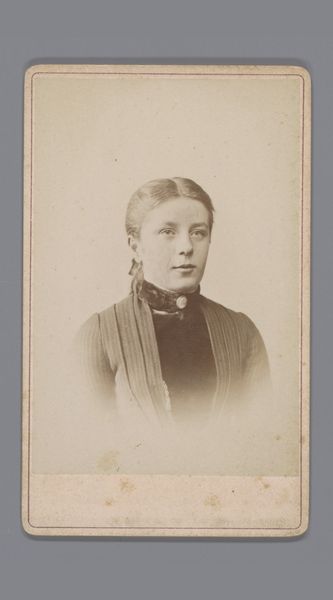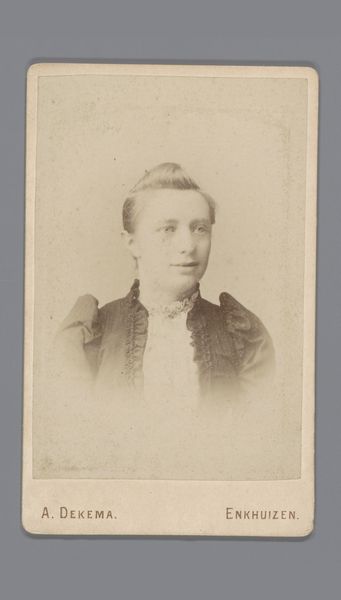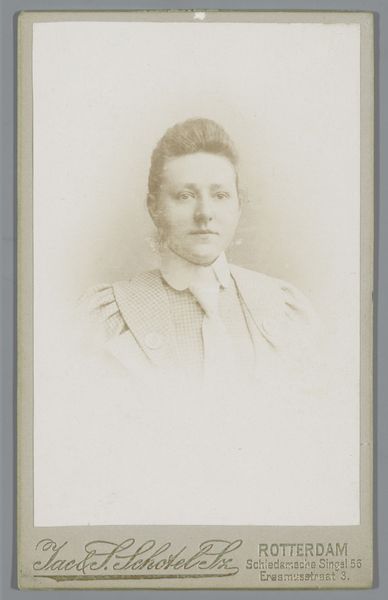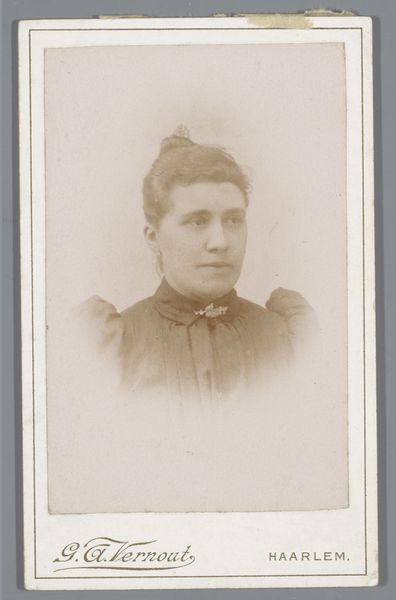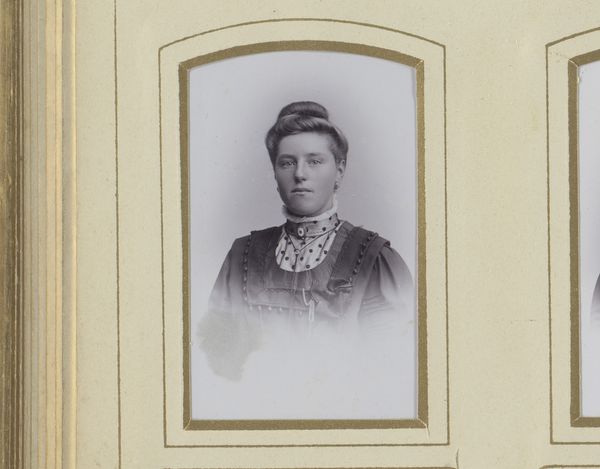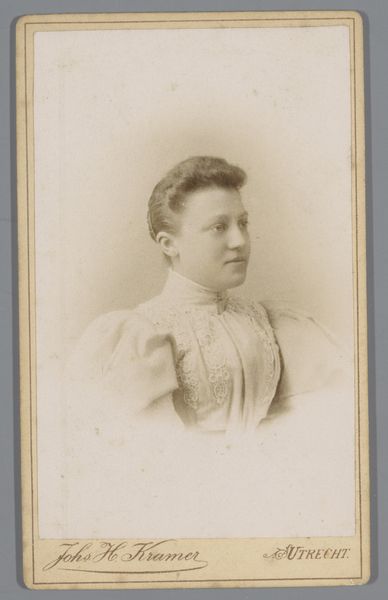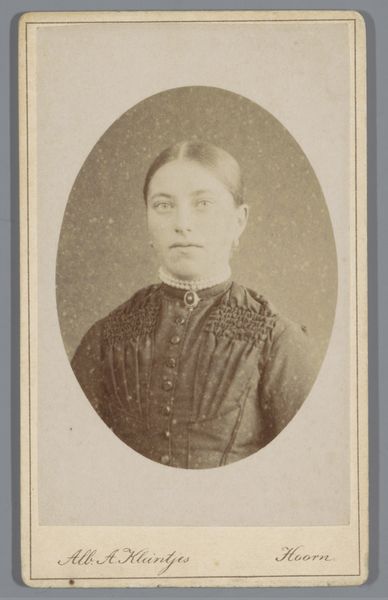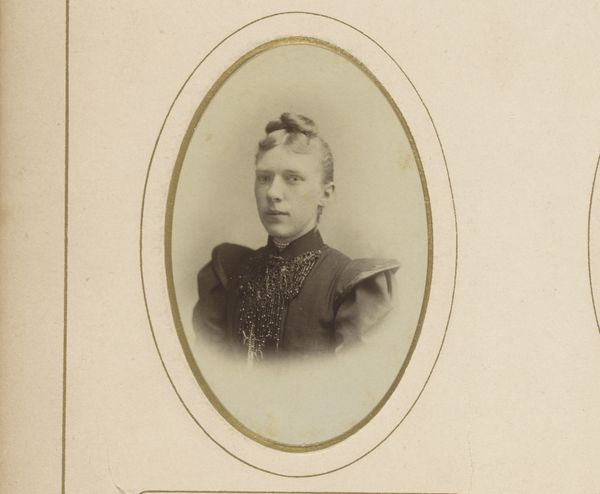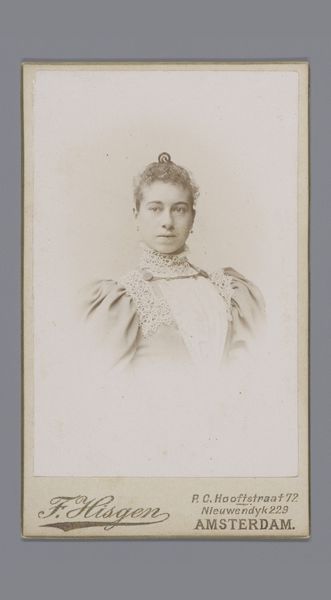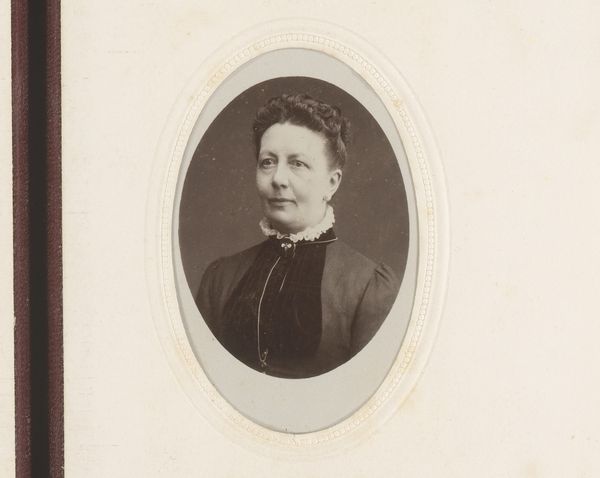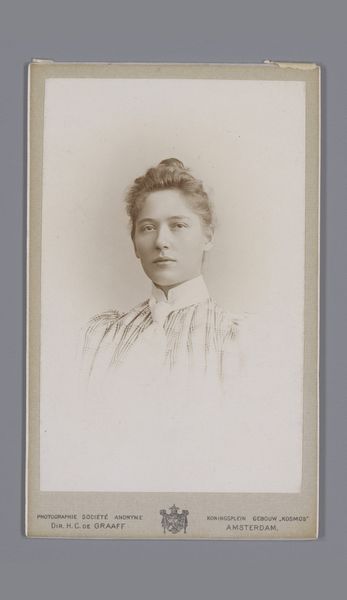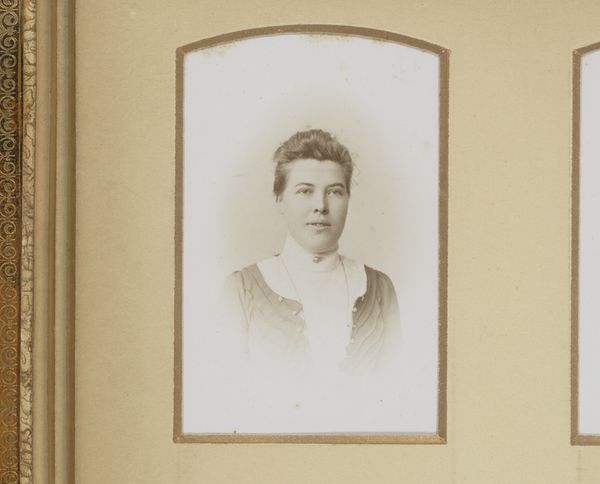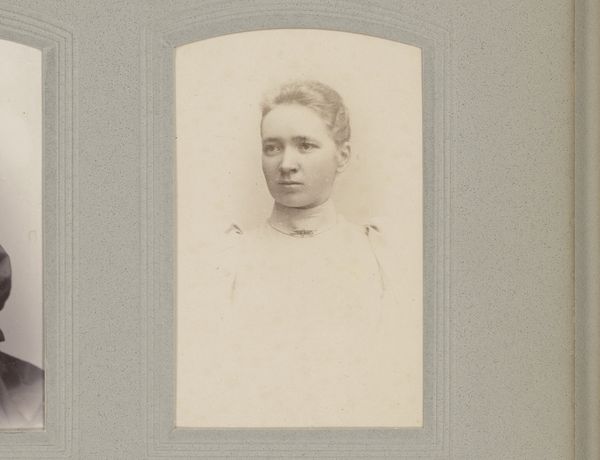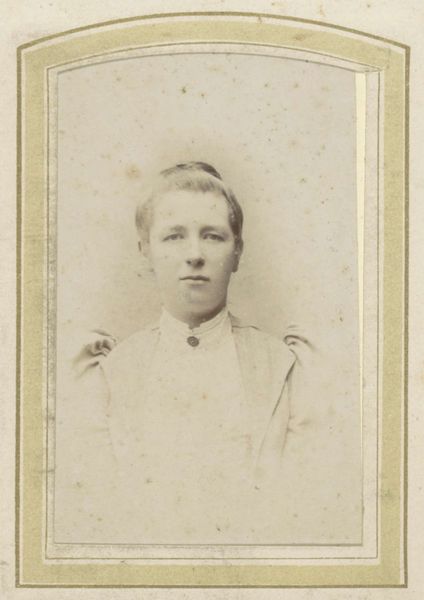
photography
#
portrait
#
photo of handprinted image
#
aged paper
#
pale palette
#
reduced colour palette
#
pastel soft colours
#
pale colours
#
light coloured
#
white palette
#
feminine colour palette
#
photography
#
genre-painting
#
soft colour palette
#
realism
Dimensions: height 105 mm, width 66 mm
Copyright: Rijks Museum: Open Domain
Editor: This is "Portrait of an Unknown Woman," a photograph taken sometime between 1874 and 1887 by Albert Greiner. The muted tones and direct gaze give it a very solemn, almost melancholic feeling. How do you interpret this work? Curator: This photograph, taken in a burgeoning era of photographic portraiture, offers a glimpse into the construction of identity for women during this time. Who was this woman? And what power dynamics were at play in determining how she presented herself to the camera, and consequently, to the world? Editor: That's fascinating. I hadn't considered the element of self-presentation so explicitly. Curator: Consider the clothing she’s wearing and the context of 19th century Amsterdam society. What does it communicate, both intentionally and unintentionally? How might her social class, profession, or personal beliefs be subtly coded into this image? Editor: It’s difficult to say for certain without knowing who she was, but the tailored clothes do suggest a certain level of formality, maybe even authority. It makes you wonder about the limitations placed on women’s expression through portraiture, yet also their ingenuity in navigating those constraints. Curator: Precisely. We have to acknowledge the power structures inherent in portraiture and resist the assumption that a portrait simply captures a "truthful" likeness. Instead, we can analyze it as a performance, a negotiation between the sitter, the photographer, and the prevailing social norms. This photograph, then, becomes a site of resistance and self-assertion, however subtle. Editor: That provides a more profound reading than just taking in the face value of this photo, considering its context to broaden the view. I’ll look at portraiture differently now. Curator: I think the dialogue between historical context and contemporary theoretical tools helps enrich our comprehension of an artwork like this, seeing it as a cultural artifact imbued with sociopolitical significance.
Comments
No comments
Be the first to comment and join the conversation on the ultimate creative platform.
